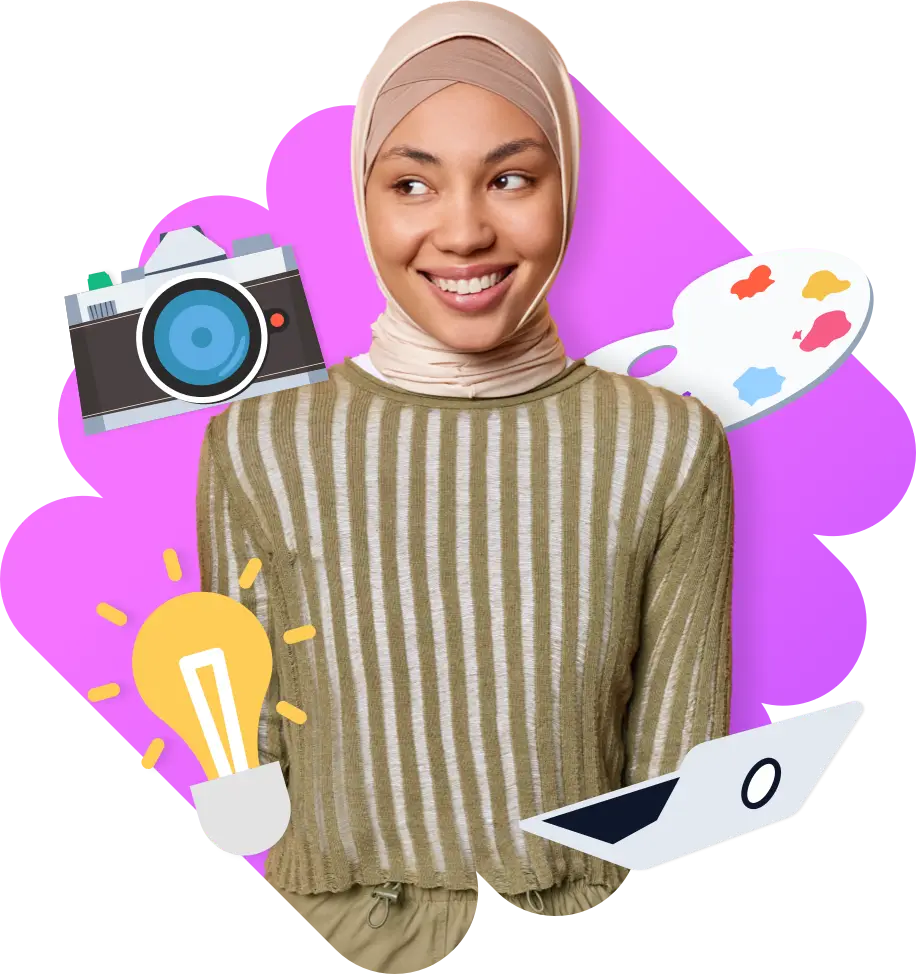Medical illustrator
Use your artistic skills to create images for training healthcare staff and for medical research.

About the job
What it's like
You would use your artistic skills to create images and take photos and videos of medical conditions and treatments. Your images would be used to train healthcare staff and to support medical research.
You’d create visual records of the care that patients receive. You’d make materials for medical teaching and research.
There are four areas you could specialise in:
Photography
Videography
Graphic design
Medical art
You would record a patient's condition using a digital camera or video. You’d take photographs so that medical staff can see the effectiveness of operations and treatments over a period of time.
Using specialist equipment and techniques, you’d capture 3-D images of structures like the eye, and record specific procedures.
You might also take photos and create artwork for:
Educational posters and leaflets for the public
Publicity materials
Annual reports
Staff magazines and newspapers
Websites
For some jobs you would:
Do forensic photography, taking photos of non-accidental injuries
Copy evidence from slides and x-rays
Do bereavement photography, taking photos for grieving parents
Use software to design presentations
You would work closely with doctors, nurses and patients in hospitals and university medical departments.

Hours
You would usually work 37.5 hours a week, Monday to Friday. You may sometimes need to be available for on-call duties and overtime. Job-sharing and part-time hours may also be possible.

Environment
You could be based in a clinic, hospital ward, studio or operating theatre. You will usually work as part of a team. You may occasionally be faced with unpleasant or upsetting situations.
Explore more information about this job
Here are some useful links to learn more about this career:
Like the sound of this career?
Browse courses in Scotland related to 'Medical illustrator'
Select qualification level(s)
Other careers that you might like
Animator Fine artist Illustrator Concept Artist
Related industries
Many jobs can be done in lots of different industries. We've highlighted the ones we think are most important for this job.
Creative
Top skills
Skills are things you're good at. Whether you know what yours are or not, everyone has them!
It's useful to learn which ones are important in a job so you know the areas you need to brush up on. It can also help you work out if you're suited to a career.
Meta skills
Here are some of the meta skills you'll need to do this job.
- attention to detail
- researching
- innovative
- designing
- creative
- working with technology
- adaptability

Your skills are important
Our unique skillsets are what make us stand out from the crowd. Learn about each skill in depth and discover what employers look for in your applications and interviews.
Getting in
Explore each section to find more information about getting into this career.
Colleges and universities will list subjects you'll need for entry to a course. Some useful subjects include:
Art and Design
Graphic Communication
Human Biology
Photography
Skills for Work: Creative Digital Media
You would need a degree (SCQF level 9/10) in Photography followed by Postgraduate Certificate in Clinical Photography (SCQF level 11).
You can enter some photography National Certificate or National Qualification courses (SCQF level 5) with no formal qualifications but most courses require National 4/5 qualifications (SCQF level 6).
You can enter a Higher National Certificate (SCQF level 7) or Higher National Diploma courses (SCQF level 8) with National 4/5 qualifications and one to two Highers or equivalent qualifications.
Entry to a degree (SCFQ level 9/10) requires National 5 qualifications and a minimum of four Higher or a relevant HNC/HND.
To enter a postgraduate qualification (SCFQ level 11) will usually require a relevant degree. There are no postgraduate courses in Scotland
Medical illustration is a small and specialised field and there is often a lot of competition for vacancies.
The Institute of Medical Illustrators offers Assured Voluntary Regulation, through the Academy for Healthcare Science.
This is increasingly sought after by potential employers, as a recognition of professional standards.
Qualifications that demonstrate creative, digital and visual communication skills such as Skills for Work Creative Digital Media (SCFQ level 4) or Creative Industries (SCFQ level 5).
Work-based qualifications such as a Diploma in Creative and Digital Media (SCQF level 7) may also be helpful.
You will improve your job prospects if you also have relevant work experience.
You will need a portfolio of your work when applying to courses and to jobs.
Find the right course for you
Browse courses in Scotland related to 'Medical illustrator'
